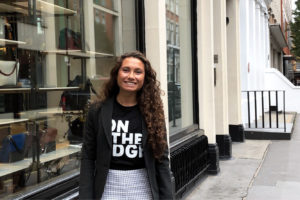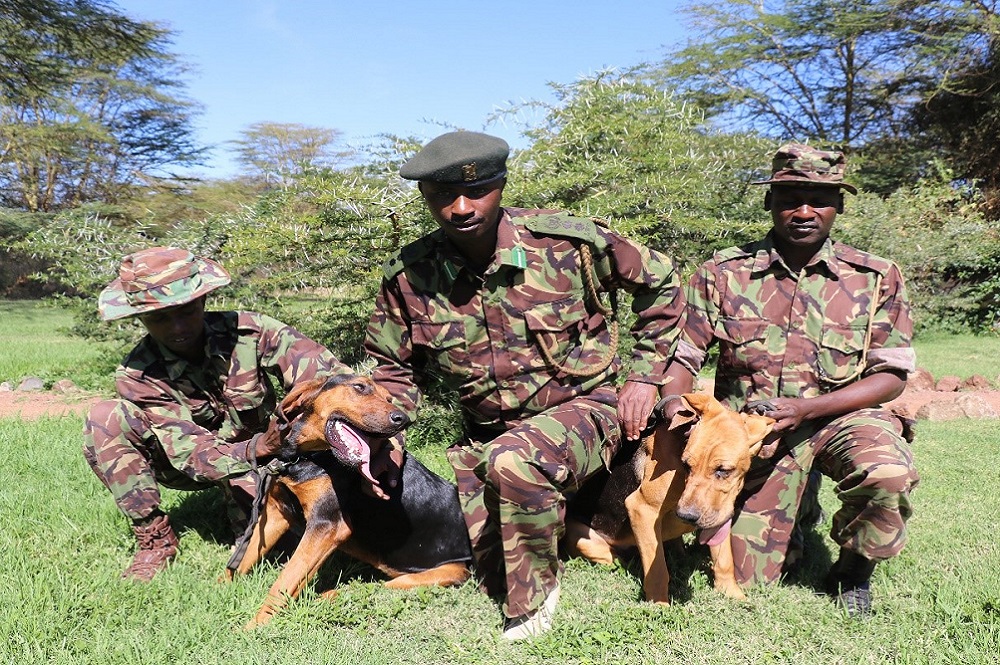The rangers we support are all incredible and so driven to protect rhinos. Walking many miles each week across tough and dangerous terrain. Without their hard work and passion, many more rhinos would be lost to poaching. However, sometimes we need a helping hand – or paw! – to be even more effective.
So, can dogs really bring benefits to rhino conservation? You may know, our canine friends have an excellent sense of smell. With this terrific talent, dogs can track a scent after a poaching incident, leading rangers and enforcement authorities to poachers, or at least understand the routes used. Dogs can also detect wildlife products, and many are stationed to ‘sniff out’ rhino horn at key locations, such as transport hubs, at park gates, or even in organised searches, finding and stopping wildlife traffickers.
Today dog squads or canine units are a crucial part of many ranger teams, but there is room for improvement to build the ability for rangers working with dogs. Acknowledging this, we helped coordinate a workshop in South Africa last year, bringing field programmes from across the continent to share their knowledge, hear from experts and develop their skills to build effective dog squads. With expert advice and lots of collaboration, rangers left with the knowledge to work closely with dogs, giving everyone an extra tool to improve enforcement and save more rhinos.
One of the attendees from the 2018 workshop, Edward Ndiritu, Head of the Anti-Poaching Unit at Lewa Wildlife Conservancy, Kenya, shared some fantastic news with us recently about the impact of the training for him and his team. Since the workshop, Lewa has bought two new dogs, Sacha and Ruby. With some help from other rangers and conservancies, the dogs were trained and showed exceptional tracking abilities. Sacha and Ruby enabled the successful tracking and arrest for two cases in 2018, with one of these cases leading to conviction.

Sharing more information about using dogs effectively and caring for them as part of the anti-poaching unit has given Edward and his team more capacity to make a difference at Lewa Conservancy, and beyond its fences for the surrounding communities. Lewa is continuing to build up their canine unit and we’re excited to see how much more can be achieved.
There was so much positive feedback from this first workshop that – in collaboration with Working Dogs for Conservation – we are helping to organise another, taking place very soon in Kenya. The focus of this year’s workshop will be on improving welfare of dogs for better performance, training, husbandry and veterinary practices, as well as showcasing the emerging trends in law enforcement, so that dog squads can stay ahead of the game in protecting wildlife and disrupting trafficking routes.
More and more anti-poaching units are seeing the benefits of canine units, and we’re sure that the rhinos are seeing some of those benefits too.









